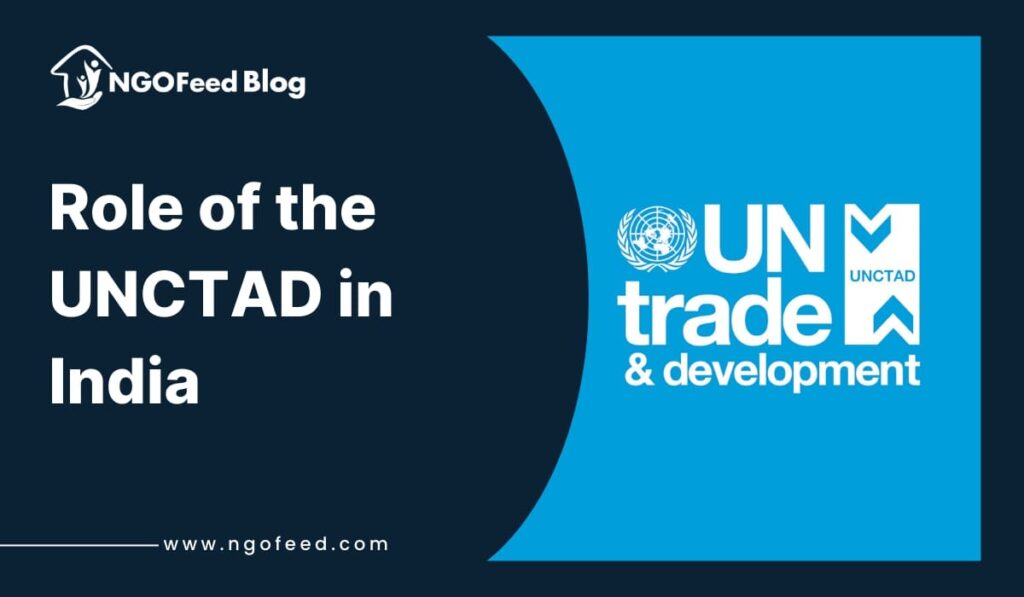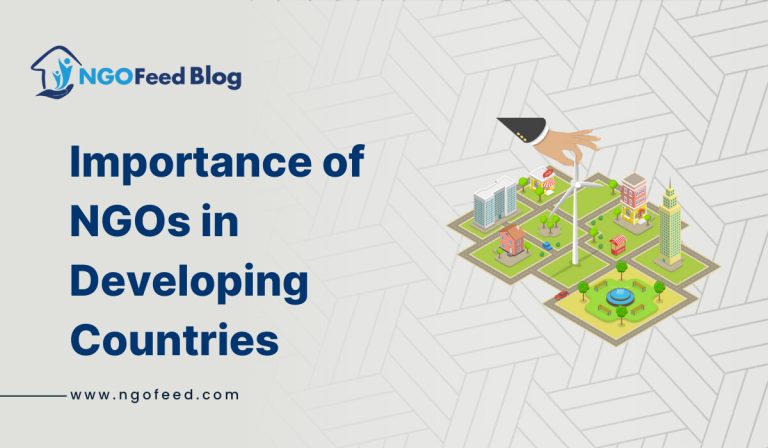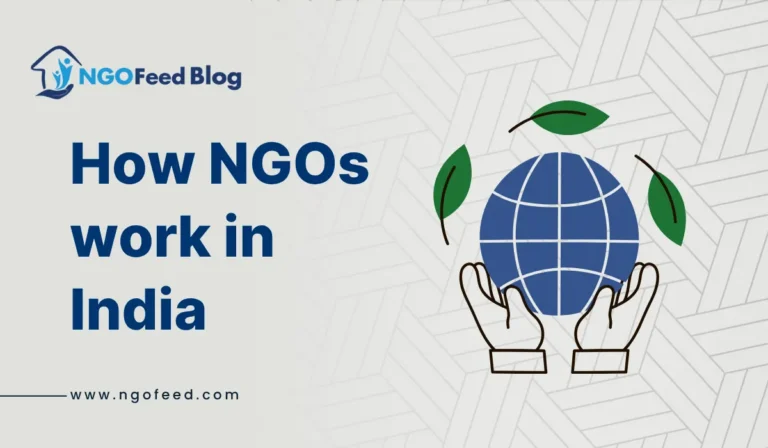Role of the UNCTAD in India: The full form of UNCTAD is the United Nations Conference for Trade and Development. The United Nations General Assembly, often referred to as UNCTAD, is the parent body of the United Nations Conference on Trade and Development. Furthermore, UNCTAD is one of the United Nations’ permanent organs. The United Nations Conference on Trade and Development deals with trade, investment, and other development-related affairs.
This article discusses India’s historic and evolving experience of economic growth and its interactions with international policies and cooperation which define the features of globalization and trade.
The United Nations Conference on Trade and Development (UNCTAD) has helped India emerge as the trade node and the economically sustainable nation it is today. This article discusses UNCTAD’s role in India, its working, involvement, and its planning and execution in terms of how its framework fits the Indian vision of sustainable development and balanced growth. Understand how this peculiar connection of global practices with local dynamics sets the pace of change for India in becoming a growing world economy.
Table of Contents
About UNCTAD
- The United Nations Conference on Trade and Development (UNCTAD) was established in 1964 and its headquarters is in Geneva, Switzerland.
- UNCTAD was founded on the thirty-seventh session of the General Assembly of the United Nations on December the 30th, 1964. UNCTAD is headquartered in Geneva, Switzerland, and has regional offices in New York, USA, and Addis Ababa, Ethiopia.
- UNCTAD is an organ of the UN Secretariat headed by the Secretary-General and accountable to the UN General Assembly and the ECOSOC. It has its membership, management, and finances.
- The first UNCTAD conference was held in Geneva in 1964 because many developing countries demanded it with reference to their position in international trade.
- About UN Trade and Development (UNCTAD) | UNCTAD
Also Read: Role of UNHRC in Safeguarding Human Rights
Importance and Role of the UNCTAD in India
UNCTAD has a very relevant function in India as it contributes to the development of the country’s trade and trade policies. As a global body, it focuses on fostering equitable trade, sustainable development, and economic resilience, its collaboration with India has been influential in various domains:
- Trade Policy Development: UNCTAD has been involved in assisting India in developing trade policies that fit the country’s macro-region and the global economy without negating internal objectives. In this capacity, UNCTAD helps India to negotiate more favourably in terms of a multilateral trading system through its promotion of fair trade.
- About Improving Small and Medium Enterprises (SMEs): India’s SMEs are crucial to the growth of its economy and for decades, UNCTAD has played a coordinating role to assist the enterprises through enhancing their capacities, providing them with technology as well as helping them enter international markets.
- Sustainable Development for Promotion: Concisely reconciled with the aim of the United Nations Sustainable Development Goals, UNCTAD engages in multiple development cooperation activities with India to address climate, poverty erection, and inclusive economic growth. Recursively, programs concern themselves with the pursuit of economic development objectives and care for the environment.
- Evolving Digital Economy and Electronic Business: Many of UNCTAD’s undertakings in the aspect of digital trade and e-commerce have been important to India, given the business’s explosive IT segment. These help India to use technology to increase trade, increase connectivity and encourage entrepreneurship.
- Promoting Regional and Global Integration: As a South-South cooperative organization that supports regional cooperation, UNCTAD helps to increase India’s power in Asia and other regions. This includes lobbying for India to set the tone in new economy markets.
- Several programs fall under the category of Capacity Building and Technical Assistance, these include:
UNCTAD provides capacity development to the policymakers, trade negotiators, and institutions of India thereby strengthening their capacity to solve multifaceted global problems. - Concern on Gender Equality as well as Social Inclusion: Like all its programs, UNCTAD’s programs in India specifically seek to Initiate structural change for equitable development with a focus on empowering women and other vulnerable groups.
- The Role Of Facilitating Investment And Innovation: In particular, FDI and innovation, promoted by UNCTAD and facilitating India’s efforts to become a knowledge-based, infrastructure-supported economy and generate employment.
Also Read: UNDP and Its Partnership with India
Importance of UNCTAD in India
- Global Representation: UNCTAD helps amplify India’s voice on international trade and development forums.
- Policy Guidance: These approaches assist in reforming the Indian business environment by providing global best practices based on research evidence.
- Economic Resilience: In particular, UNCTAD enables India to cope with the adverse developments in the global economy, thus promoting sustainable development.
- Advancing Development Goals: UNCTAD is more concerned with sustainable growth; and obviously, that has a good consonance with the developmental needs and aspirations of India particularly as it attempts to close painful gaps in the sectors of trade, technology, and social justice.
- The role of international cooperation in embracing national and international opportunities as well as challenges has been a core theme of united-India cooperation that puts the country at the centre of the contemporary global economy.
UNCTAD Objectives and Functions
- UNCTAD was founded in 1964 as a universal organization with the main objective of assisting the integration of Third World countries into the global economy in a most development-friendly manner. Its specific objectives include:
- Promoting Equitable Trade: Support the development of equitable trading relations that promote fair trade between developed and developing countries.
- Reducing Trade Barriers: Fight for the liberalization of trade and offer globalization’s voice to the developing world to express its discontent over unfair trade deals.
Facilitating Sustainable Development:
- Integrate the principles of key global policy document – the Sustainable Development Goals (SDGs) into trade and development policies.
- Building Economic Resilience: Assist nations set up frameworks and policies that will enable a country to structure its loss in a way that is cushioned from any shocks outside its control like a financial crisis or climate change.
- Encouraging Investment: Encourage capital mobilization to develop countries for industrialization, innovation, and infrastructure advancement.
- Providing Policy Recommendations: Provide policy counsel and technical support-based analyses to enhance trade as well as economic and institutional arrangements.
Also Read: Role of WHO in Healthcare
Functions of UNCTAD
UNCTAD fulfils its objectives through a variety of functions that address trade, investment, and development challenges:
- Policy Analysis and Research: Pursues comprehensive research on international trade, investment, and development policy, and offers policy recommendations for members.
- Negotiation and Consensus Building: Serves as a platform for the promotion of global trade and development policy where countries may table their concerns, reach to trades, and formulate policies.
- Technical Assistance: Offers capacity enhancement initiatives and services for developing nations in various sectors including trade liberalization, foreign investment policies, and technology transfer.
- Monitoring and Advocacy: Monitors international trade patterns and protects the development’s voice, as well as; promoting the agenda of developing countries in international trade negotiations and policies.
- Promoting South-South Cooperation: Promotes regional export and economic integration among developing nations, with an aim to foster growth, and thereby minimize dependence on the developed nations
- Supporting Economic Diversification: Encourages countries in the developing world to seek to diversify their economies and avoid concentration on one particular sector.
- Facilitating Digital Transformation: Aids on how to effectively enter digital trade and e-commerce to avoid leaving developing nations in the dark about new technologies.
- Encouraging Gender Equality: Pushes for policies that empower women and other marginalized groups to actively engage in trade and development exercises.
- In achieving these objectives and performing these functions, UNCTAD seeks to build a fairer and more open economy in the globalization of the development problems of developing countries.
UNCTAD Members
- Secretary-General: Rebeca Grynspan (Rebeca Grynspan of Costa Rica is the first woman and Central American to serve as UNCTAD’s secretary-general.)
- Deputy Secretary-General: Pedro Manuel Moreno from Spain was labelled Deputy Secretary-General of UNCTAD by the United Nations Secretary-General on 4 November 2022.
UNCTAD was formed of 195 member countries and cooperates with NGOs globally; it has a permanent seat in UNOG in Geneva, Switzerland. The United Nations Conference on Trade and Development (UNCTAD) has various types of members, including:
Also Read: Role of UNESCO in Education
ISAR
A set of nations that participate in the international forum for discussing corporate governance and reporting. It is important to note that membership to the secretariat is limited to UNCTAD member and observer states and there are no financial commitments or requirements for member countries.
Commission on Science and the Technology for Development
An organization with 43 member countries, appointed by the Economic and Social Council for four years. The commission has members from:
- African states
- Asia-Pacific states
- The Latin American and Caribbean States
- Eastern European states
- Western Europe and other states
Group of 77 (G-77): A group of 77 developing countries formed during the first session of UNCTAD in 1964.
SOURCE – Membership of the CSTD | UNCTAD
Frequently Asked Questions (FAQs)
Q-1) How many members are there in UNCTAD?
UNCTAD is catering to the citizens of 195 countries that are part of its organization. The aim is the welfare and well-being of all the people
Q-2) Who is the present chairman of UNCTAD?
On 13th September 2021, Costa Rica’s Rebeca Grynspan became the eighth Secretary-General of the United Nations Trade and Development (UNCTAD).
Q-3) Who is the founder of the UNCTAD?
Raúl Prebisch, the Argentinian economist who had served as the head of the United Nations Economic Commission for Latin America and the Caribbean had the honor of serving as the first Secretary-General.









